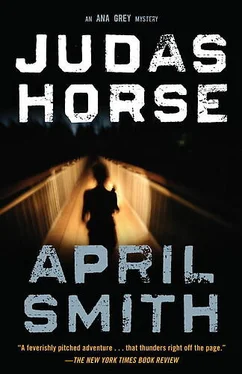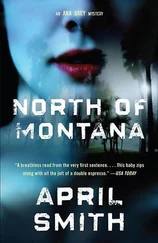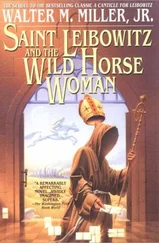Inside the farmhouse, the hot, dead air smells like the acres of clothes in the old bomb shelter, in the subbasement at Quantico, where we chose our costumes for the Bureau’s tireless mind games.
“You will be observed for signs of deceit that suggest you’re not who you say you are.” Here, also, time has a smell, and the smell has accumulated in the mismatched cushions and Oriental rugs and curtains of gold lamé, and it is gripping me with vivid awareness.
I have penetrated someone’s inner world.
I revel in the treachery, experiencing the same satisfaction Darcy would have felt hacking into the biotech company’s computer system. Fact or fiction, I discover there is a tasty thrill in crossing the line. I am elated not to be who I say I am.
“Can I make you a cup of tea?”
“That would be lovely.”
Megan goes, and I want to twirl around the room, a treasure trove of clues, although you would need a team of investigators to comb the layers of cozy kitsch — ashtrays, lamps, Depression glass, doilies, tin trays, detective magazines — everything carefully arranged and dusted.
On the wall is an authentic DeKalb barn sign — the flying corn with the wings — the same deliberate symbol of the Midwest as on Dick Stone’s cap. Well, folks, we’ve already deciphered that one. On the wooden mantel is a collection of clocks, new and old, all of them accurate. Again, the scent and feel of time, bottled and corked — like their twenty-year outlaw run?
There is a gentle clicking sound. I look up from the broken-down sofa where I have sunk to my hips, surprised to see a stunning young woman enter through the swaying bones of bamboo.
She is the same rescuing angel I saw when I first came to the farm, yet the appearance of Sara Campbell from the same curtain through which Megan Tewksbury vanished, bearing the tea that Megan promised, seems a mocking transformation of the older woman; as if Megan, with her boozy sentiment and half-dyed dreadlocks, had been banished to the drudgery of the kitchen so this radiant being could emerge.
Not that the girl is scornful in any way. She is a barefoot geisha in blue jeans, back straight, kneeling gracefully to set the teacup down.
“Hi.” She smiles uncertainly.
“I’m Darcy. We met when I brought the ducks.” “That’s right. The sick one died. It was awful.” She has long, thin arms and legs, and blond hair so fine and cropped so short, it lays like a halo around her head.
She eases down, sitting cross-legged on the rug.
“Megan says you’re committed.”
“I am.”
“So am I.”
“That’s good.”
“We all are.”
“Who is?”
“Everyone who lives here.”
Sara’s face has become serious. Her grave composure clutches at your heart. Barely out of her teens, her impeccable beauty, like that of the wild horses, arises from genuine innocence. Looking up, her eyes are winsome and unself-conscious, and the curve of her temple is enough to make you want to pick up a pen and draw.
“And that would be?”
“Well, it’s me, Megan, Slammer, and Julius. And the animals.” Take it slowly.
“Julius — he mainly takes care of the orchard?” “The trees are his passion. I guess he’s the one who turned this place around.” “You guess?”
“I’ve only been living here three months.” “And Julius?”
“He and Megan have been together for a while. I’m not really sure.” “He told me he was a bandit.”
Sara laughs. “Julius has a wonderful sense of play.” “‘Play’?”
“He’s just messin’.”
“How did you all”—I make a motion, like stirring a pot—“meet?” Sara draws her legs up. She turns her head and lays a cheek on her knees. I can see her wistful look reflected in the large round mirror of a dressing table. Throughout the rooms, there are thrift shop Art Deco dressing tables with big round mirrors. You turn a corner and catch a shocking glimpse of yourself in the circular glass, as if the house is watching you with many eyes.
“It was Julius,” she says, sighing, “who saved us from the streets.” And she’s in love with Daddy?
“Slammer and I were squatting with a family under a bridge in Portland. Not your normal family — everyone was a runaway. The oldest guy, SB, was in his twenties. There were a lot of drugs, a lot of violence, but what made me want to leave was the way people turned on each other, just because SB told them to.
“His name was really Satan’s Boy. It was really Duane, or whatever. There was this one girl who was mentally retarded — we used to call her Bubbles — and one day SB accused her of lying to him…. You know what?” She stops. “That’s negative energy, and I’m here now.” “Did something bad happen to Bubbles?”
Her face closes up and she presses her lips against her knee, then sinks her teeth into her own skin and chews on it in order to keep from seeing it again, the bad thing that happened to Bubbles.
“You don’t have to do that.” I gently touch her hair. “It’s okay.” She stops and turns her face away. The sun raises a soft orange corona along the ridge of her bare shoulders. She is wearing two fraying tank tops, one over the other, and a heavy silver pendant of three interlocking triangles.
“Megan has the same necklace,” I observe.
She sniffles. “It’s a valknot.”
“Nordic, right?”
“There was a king in the seventh century.” She turns her head and lifts wet, translucent eyes. “King Odin. It represents his powers — to bind or to open our minds. It means ‘knot of the chosen.’” “Cool. Can I get one?”
“Only if you’ve taken the vows to follow the Allfather,” she says cautiously.
“Is Julius the Allfather?”
She nods.
“And the vows?”
“I can’t talk about that.”
I grin. “Well, I guess we’re all chosen. For something. Like you guys winding up here together.” I make the stirring motion again. “Slammer, huh? What’s his story?” “Survival.”
“Got it. Did you two run away together?” She laughs a little and wipes her eyes. “Are you kidding? We’re from totally different backgrounds. Where my parents live, he couldn’t get past the gate.” “Your parents must be looking for you.”
She shrugs. “They gave up on me in high school. They are not in my life. In the squat, Slammer and I made a pact to stick together, so when Julius showed up and said he could live on the farm, Slammer said if I couldn’t go, he wouldn’t go, either.” Dick Stone cruises the underbelly of Portland, recruiting street kids — young and vulnerable and not easily traced.
I sip the tea. It tastes like twigs.
“I left home, too. Moved to Portland from Los Angeles.” Sara is bemused. “I can’t see you on the street,” she says, which I find vaguely insulting. “Don’t ever go to Pioneer Square at night. You can’t imagine how those kids are living.” Her eyes fill again. “It’s so sad.” I give her a moment and ask, “Where are you from?” “Dirt,” she says, floating to her feet as Megan comes back through the curtain.
“Let’s get you settled.”
The three of us climb the dark-wood staircase to the attic room the girl and I will share. The wallpaper is fragile and old-fashioned, sweetheart roses, original to the house. I pick out the daily life of this jerry-rigged clan from the smells that have risen up the staircase on strata of hot air: cat food, musty rugs, herbal shampoo, sage incense, and weed.
“Where is Julius?”
“Out on his tractor,” Megan replies. “He’s always on his tractor.” And I hear it through the window on the landing before I can see Dick Stone through the panes of glass, a small figure in a straw hat on a red machine, going up and down the rows with unwavering resolve.
Читать дальше












